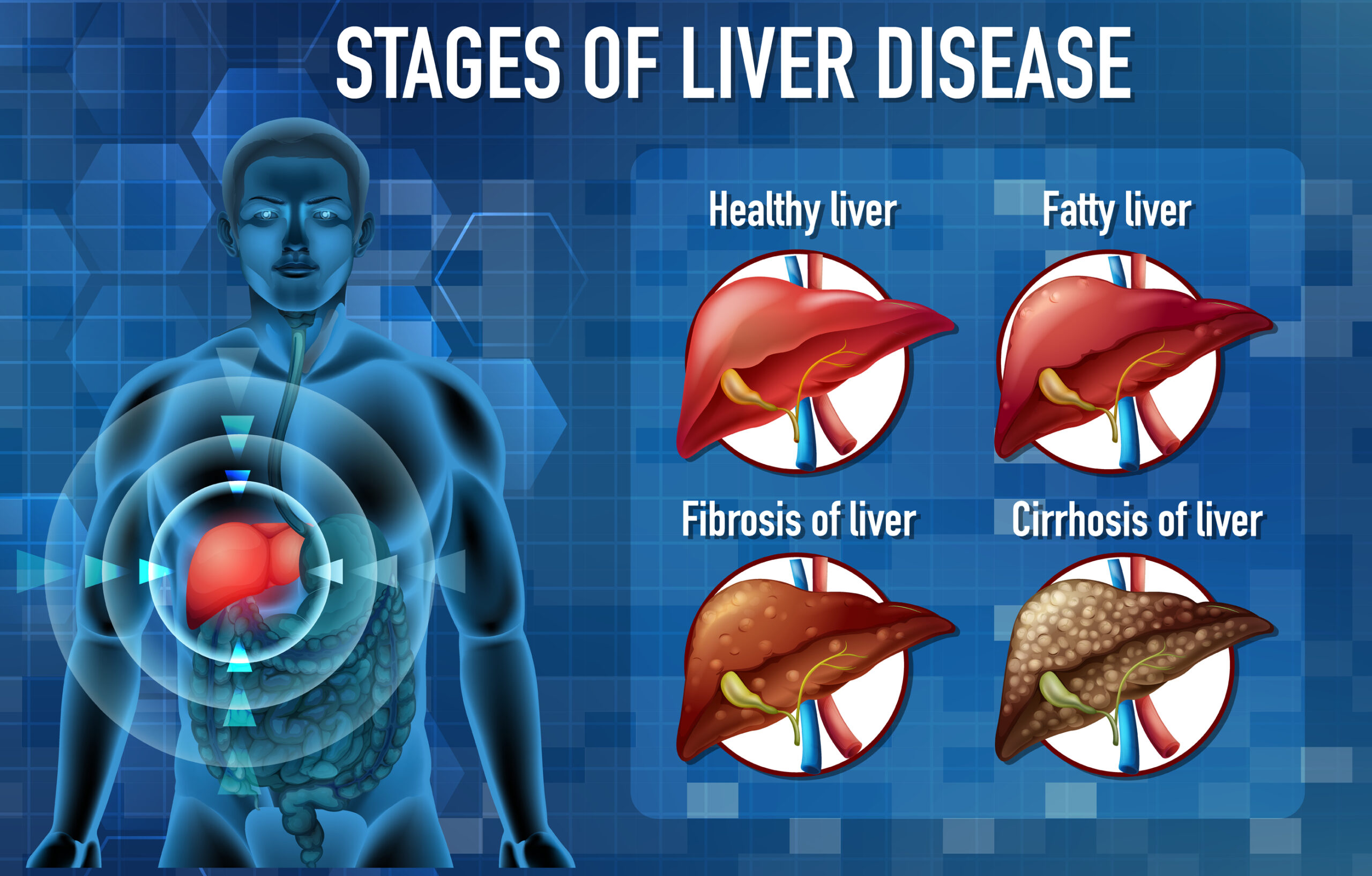7 Fatty Liver Symptoms – Identify & Handle Them
Fatty liver disease, also known as hepatic steatosis, is a condition that can occur when too much fat accumulates in your liver. Although it is normal for your liver to contain some fat, when the fat content exceeds 5-10% of the liver’s weight, you can start to experience inflammation, scarring, damage to liver cells, and other fatty liver symptoms.
Fatty liver disease is becoming increasingly common, with an estimated 1 in 4 people affected worldwide. Unfortunately, many people with fatty liver disease are unaware they have it as they may not experience any symptoms.
Fatty liver disease can be categorized into two types: alcoholic fatty liver disease (caused by excessive alcohol consumption) and nonalcoholic fatty liver disease (caused by other factors such as obesity, high cholesterol, and type 2 diabetes).
If you’ve been experiencing the symptoms of a fatty liver, it’s important to be proactive about your health and seek the guidance of a qualified medical professional. Medical professionals like Dr. Jaiwant Rangi of the Center for Metabolic Wellness can offer valuable advice on how to manage fatty liver symptoms through dietary adjustments, medication, and lifestyle changes. She can provide you with the knowledge you need to overcome this challenge.
7 Common Fatty Liver Symptoms
Most people with fatty liver disease don’t experience any symptoms in the early stages. However, as the disease progresses, the liver may become inflamed, resulting in symptoms such as fatigue, weakness, and abdominal pain.
1. Abdominal Pain and Swelling
Abdominal pain, swelling, and bloating, which can range in intensity from a dull ache to a sharp stabbing sensation, is another symptom of fatty liver disease. Excess fluid in the abdomen, called ascites, can cause discomfort and difficulty breathing. The liver regulates fluid balance, and when it’s not functioning properly, fluid can accumulate in the abdomen. It’s important to seek medical attention to rule out other potential causes.
2. Fatigue and Weakness
Fatty liver disease often leads to mental and physical fatigue and weakness. The liver is responsible for detoxifying and processing nutrients, but when compromised, these functions are impaired, leading to a buildup of toxins and a lack of nutrients. If someone experiences fatigue and weakness, it is important to speak with a doctor to determine if fatty liver disease is the underlying cause.
3. Appetite Loss and Unexpected Weight Loss
Other fatty liver symptoms include loss of appetite, followed by weight loss. The disease leaves you feeling fuller and less hungry, so you consume fewer calories which causes you to lose weight. The problem may also be that you aren’t getting the right type or amount of vitamins and minerals. It’s crucial to talk with your doctor to ascertain the true causes of any unexpected weight loss or loss of appetite and develop an effective treatment plan.
CTA: Take Control of Your Liver Health
4. Confusion and Impaired Judgment
If your fatty liver symptoms are causing confusion and other mental issues, it’s important to consult with your healthcare provider as soon as possible. If you’re experiencing confusion, rest and ask for help, then visit a doctor or hospital to determine the cause.
5. Jaundice
One of the classic symptoms of fatty liver disease, jaundice is a condition where the skin and eyes turn yellow due to the buildup of waste product bilirubin in the body when the liver is not functioning properly. Jaundice requires immediate medical attention to avoid complications and potential liver failure.
6. Change in Urine Color
Fatty liver symptoms can cause a change in the color of urine, resulting in a dark, brown, cola-colored, amber, or orange hue instead of the typical yellow. This color change is due to the accumulation of bilirubin. Changes in stool color and consistency, such as becoming clay-colored or whitish, are also serious signs. It is important to note that this can be an indication of a serious medical condition and should be addressed by a healthcare professional.
7. Enlarged liver
Pain or tenderness on the right side may also indicate an enlarged liver. An enlarged liver can be difficult to self-diagnose. Your doctor can order a painless imaging test to check for any enlargement of the liver.
Managing Fatty Liver Disease: Possible Solutions
Lifestyle Changes
Lifestyle changes, such as maintaining a healthy diet and regular exercise, can help manage fatty liver disease. Avoiding alcohol and reducing sugar intake can also help prevent further liver damage.
Medications
In some cases, medications may be prescribed to help manage fatty liver disease. Medications may include insulin-sensitizing agents, lipid-lowering drugs, and antioxidants.
Surgical Procedures
In severe cases of fatty liver disease, surgical procedures may be necessary. These procedures may include bariatric surgery or liver transplant surgery.
Fighting Fatty Liver Ailment with Responsible Lifestyle Choice
Making dietary changes, such as consuming less sugar and processed food, can aid in fatty liver disease prevention. Eat a diet that is well-balanced and rich in whole grains, lean proteins, and a variety of fruits and vegetables.
Regular exercise can help prevent fatty liver disease by promoting weight loss and reducing inflammation. Aim to get at least 30 minutes of moderate exercise most days of the week.
Other preventative measures that can help reduce your risk of fatty liver disease include avoiding alcohol, managing your cholesterol levels, and maintaining a healthy weight.
Additionally, getting regular check-ups with your doctor can help identify any potential liver problems early on. Fatty liver disease can be a serious and potentially life-threatening condition. Early diagnosis and treatment can help prevent further damage to your liver and improve your overall health outcomes.
By making lifestyle changes and working closely with your healthcare provider, you can manage the symptoms of fatty liver disease and reduce your risk of complications.

